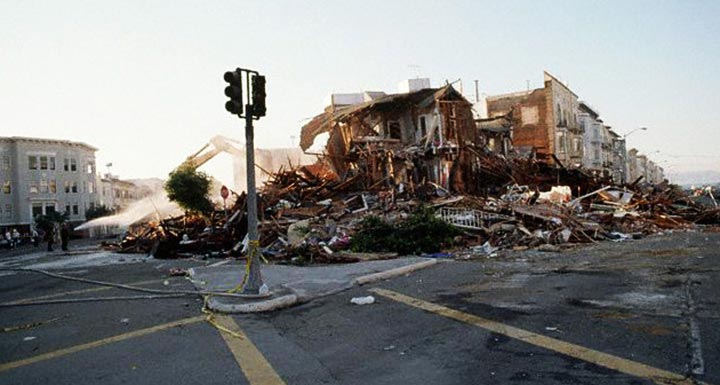
Things fall apart: U.S. infrastructure
MIAMI – The country is falling apart.
That’s not just a figure of speech meant to encompass all that is going wrong in the nation. I am not mainly speaking of the rise of a tiny class of the mega-rich the opulence of which would have shocked even Thorstein Veblen, who wrote the definitive book (“Theory of the Leisure Class“) on the lifestyles of the very rich during this country’s first “Gilded Age” a century ago.
I am not focusing either on the not unrelated decline of the middle class, or even the discrimination against, and the alienation of, vast numbers of African Americans, other minorities, and the poor. Their frustration is at such a level that it sometimes ignites into fiery violence as it did twice recently in Ferguson, Missouri.
Here I am speaking literally of physical stuff – nuts and bolts, bridges and highways, ports and railways, clean energy systems and broadband internet – that is the backbone of any developed economy and all modern (or post-modern) societies.
Is it possible that the world’s most powerful nation ranks 16th in the world in the quality of its infrastructure? It is. We are that nation. The facts are not in dispute. According to the American Society of Civil Engineers, which conducts a comprehensive study of U.S. infrastructure and issues a report card every four years, in 2013 the United States earned a D+. The reason the engineers gave the United States a grade that would embarrass a sixth-grader is because so many bridges are only barely safe, so many highways are in deplorable condition, and so many ports and other key elements of the country’s infrastructure are below standard.
It’s gotten so bad that even some of the big media, which rarely spends much airtime on an issue as unsexy as infrastructure, is taking notice. The CBS news magazine 60 minutes recently aired a special report on the country’s collapsing infrastructure.
Unfortunately, most of the media have ignored the problem, except in extreme cases where a bridge collapses killing many people or similar sensational catastrophes. Worse yet, as is their common practice, the media has done somersaults to try to assign equal blame to Democrats and Republicans.
The media’s bipartisan blame game is baloney. Since he took power amid a terrible recession, naturally President Obama was eager to spend money on fixing the nation’s tattered infrastructure. It was good policy, in at least three ways. First, it would stimulate the economy and create jobs at a time when economic growth and jobs were at a very low point. Second, the money would be spent on something that is really needed, regardless of the state of the economy. Third, infrastructure spending is more an investment than a pure outlay, and usually a very good investment, especially at a time when the U.S. government can borrow money at a rock-bottom interest rate.
In contrast, the Republicans have opposed infrastructure spending, with good success, especially after they took control of the House of Representatives in 2010. The GOP had all kinds of problems with infrastructure spending. Their dogma holds that the free market is a perfect self-correcting mechanism that doesn’t need government prodding, which only makes things worse.
Second, infrastructure spending normally produces a public good – the Brooklyn Bridge, which, as the joke goes, only a fool would dream of making his personal possession. Although private companies make money building infrastructure, Republicans are much more enthused by private infrastructure that provides huge profits for big corporations for a long time, such as the Keystone pipeline.
Thus, on top of the documented catastrophic state of U.S. infrastructure, we now have the spectacle of our very own Miami Republican Representative Mario Diaz-Balart, the new head of the House appropriations subcommittee most involved with infrastructure, vowing to spend less money. As if the government had not been skimping on infrastructure for decades. As head of the subcommittee that oversees, among other things, the Department of Transportation and all its road building and transit programs and the Department of Housing and Urban Development, Diaz-Balart is promising another turn of the screw.
Finally, although their dogma scoffs at the idea, Republicans knew in their gut that infrastructure spending would stimulate the economy and thereby help Obama get reelected in 2012. Republicans could hardly accept this even if their intransigence cost sorely needed jobs or allowed bridges to fall. After all, the first day the new Congress met in 2009, a Republican leader said the party’s number one priority would be to make Obama a one-term president.
So we come to the conclusion that the country is falling apart, but Republicans have other priorities.

